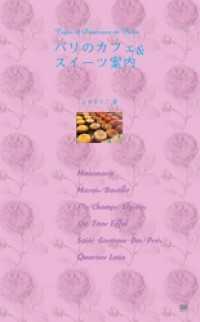Full Description
Literacy is not a decontextualized drill of skills or learning just about "a book." You will highlight, ponder, and tab as you read about the design of Concept-Based literacy lessons. All students deserve the best literacy instruction—and this IS the BEST.
—H. Lynn Erickson
The guide for designing and implementing Concept-Based literacy lessons
A Concept-Based Curriculum is designed to help students uncover important, transferable understandings about what it means to be a capable reader, writer, speaker, viewer, listener, and thinker. But, too often, a well-designed, conceptual curriculum does not translate into conceptual teaching. Concept Based Literacy Lessons helps bridge that divide, and provides practical support for teachers implementing Concept-Based literacy lessons.
This essential guide picks up where the book, Designing Concept-Based Curriculum for English Language Arts left off. Authors Lois Lanning and Tiffanee Brown explain how to move from design to actionable practice by providing tools and examples straight from the classroom. They'll also show teachers how to use common literacy instructional practices (such as Socratic Seminar, close reading, think aloud, explicit instruction, and so forth) to support students' transfer of conceptual understanding.
Written especially for literacy teachers, readers will find
Step-by-step help with lesson planning for conceptual understanding and transfer
Ideas for supporting inductive learning
Classroom Snapshots that showcase familiar literacy practices in Concept-Based classrooms
Strategies to promote critical, reflective, and conceptual thinking
Model elementary and secondary Concept-Based lesson and unit plans
A chapter devoted to answering frequently asked questions
For educators looking for practical ways to implement a Curriculum and Instruction Model that's more inquiry-driven and idea-centered, look no further than this book.
Contents
Acknowledgments
About the Authors
Introduction
1. Curriculum is the Foundation
Maximizing Learning Through a Coherent Curriculum
WHAT is Concept-Based Curriculum?
WHY Concept-Based Curriculum and Instruction?
HOW Are Concept-Based Curriculum Units of Instruction Designed?
The Classroom Setting
Summary
Extending Thought
2. Designing Concept-Based Literacy Lessons
Concept-Based Literacy Lessons
Steps in Planning a Concept-Based Literacy Lesson
Resources to Guide the Lesson-Planning Process
A Flowchart to Guide Thinking
Final Product
Summary
Extending Thought
3. Learning From Model Literacy Lesson Plans
Role of Inductive Inquiry in a Concept-Based Literacy Classroom
Balancing Inductive Inquiry and Explicit Instruction
The Developing Concept-Based teacher Rubrics
Learning Through Model Lesson Plans
Summary
Extending Thought
4. Designing Learning Experiences That Develop Conceptual Understanding
Moving Beyond Skills to Conceptual Understanding That Transfers
Developing Three-Dimensional Learning Experiences
Snapshots of Concept-Based Literacy Classrooms
Summary
Extending Thought
5. Frequently Asked Questions
Resources
Resource A: Model CBCI Curriculum Units
Resource B: Sample Graphic Organizers
Resource C: Student Reflection and Self-Assessment of Process
Resource D: Other Tools to Support Concept-Based Literacy Lesson Design
Resource E: Developing Concept-Based Teacher/Student Rubrics
References
Index








